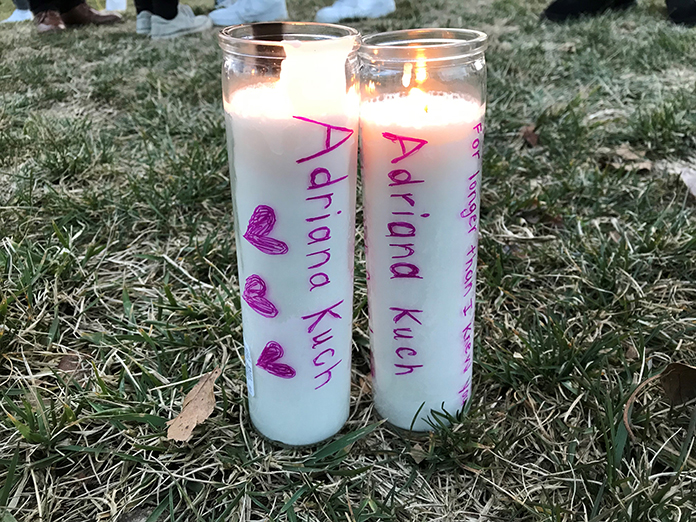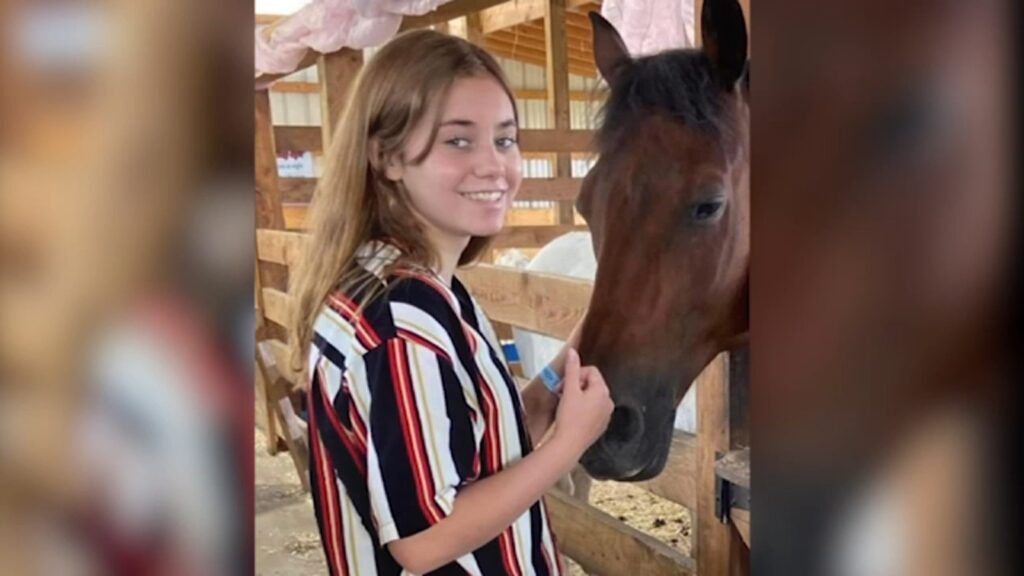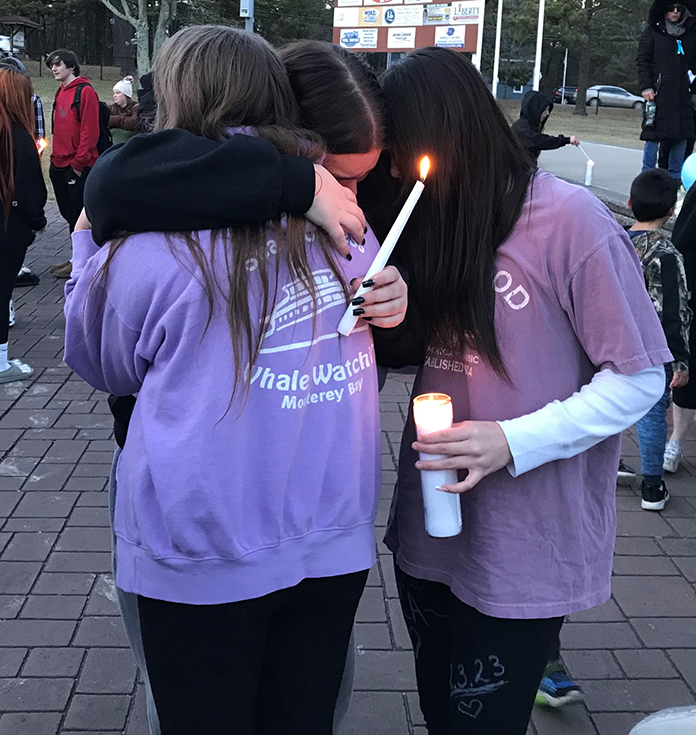
OCEAN COUNTY – The tragedy hit entirely too close to home – at most, a few exits away on the Garden State Parkway.
Adriana Kuch took her own life in February. The fourteen-year-old Central Regional High School freshman’s suicide has ignited every family’s worst fear.
Bullying can be deadly – whether it involves physical contact or not.
In a national news interview, Michael Kuch related his final conversation with his daughter.
Adriana was upset that her attackers took to social media to bully her further. A video circulated showing a group of girls physically attacking her in a school hallway. She was dead by her own hands the following morning.
People who never met Adriana remain heartbroken by her shortened life. Adriana’s death has also sparked the spotlight on bullying and the way schools address it.
Toms River Superintendent Michael Citta told parents they are also heartbroken over what happened and explained how the district is responding.
“Our building administrators, counselors, teachers and support staff have been traveling from classroom to classroom to offer an ear, have a discussion, and talk about resources in our schools, district, and community that can provide support for any traumatic or everyday situation. It is extremely important that our students and families know we are here to listen and support them. In fact, being truly heard is the first step toward healing,” he said.

“Our guidance counselors have always remained a resource for students, but please know that now more than ever, our counselors will be readily available to meet with students upon request. If you feel that your child is in need of additional support or assistance, please contact your child’s school,” he said.
A few years ago, the district established a web page with available resources, including Youth Counseling Program in partnership with
Ocean County YMCA. This page is often updated with new information and is now featured on the district’s home page.
“We will continue to consult with our various committees dedicated to health and wellness such as our Mental Health Committee, School Safety Teams, Super Safe and Drug-Free Committee, SCIP committees, and other school-based cohorts that are composed of school leaders, teachers, parents, community members, and students in order to review existing district policies related to Harassment, Intimidation, and Bullying (HIB), cell phone use, student code of conduct, and policies related to school culture and climate,” he said.
In Southern Ocean County, the superintendents of the Barnegat, Lacey, and Pinelands school districts all sent letters that began with an expression of sadness for a life ended too young. Each also provided parents with available resources and assurances that their districts considered safety a priority.
Barnegat Superintendent Dr. Brian Latwis stressed the importance of students understanding mental health and wellness resources made available throughout the community. Each of the principals overseeing grades K-12 relayed a message to students about how to ask for help.
“Students need to know that our schools are filled with caring adults who are ready to help any child in need,” wrote Latwis. “We also ask that you reiterate that message at home and encourage open conversations with your child/children.”
Barnegat school administrators also facilitated age appropriate assemblies with the students in each school. They reviewed the Code of Conduct, discussed appropriate cell phone usage, cyberbullying, and social media.
According to Latwis, each of the individual schools runs a School Safety/Climate team that works to identify and address patterns of harassment, intimidation, or bullying of students. The committees include the principal, at least one teacher, the school’s Anti-Bullying Specialist, a parent and anyone else designated by the principal.
Lacey Superintendent Dr. Vanessa R. Pereira’s letter to parents informed them that the middle school and high school principals delivered a message about where students could find help when faced with challenges in and out of school. The focus for all grade levels was on the district’s resolve to listen to students in need.
“We are currently forming a steering committee comprised of school leaders, teachers, parents, community members, and students to review existing district policies related to Harassment, Intimidation, and Bullying; cell phone use; student code of conduct; as well as policies that relate to culture and climate,” wrote Pereira. “The purpose of this committee will also serve to collaborate on programs and presentations that will best serve to educate our students and families on bullying prevention, strategies for using social media responsibly, and the importance of kindness.”
Pinelands Regional’s Superintendent Dr. Melissa McCooley emphasized the district’s position on bullying within the school. Parents were encouraged to speak with their children about the ramifications of bullying, fighting, and the use of cellphones and social media.
“We have zero tolerance for fighting and the recording of it,” McCooley shared. “The administration takes a hard stance on this. Students that attack other students are immediately charged with assault. Students caught recording other students are suspended.”

Students who attend Pinelands schools have the advantage of regularly scheduled campaigns bringing awareness to everything from suicide prevention to other aspects of mental health.
All three districts have Harassment Intimidation Bullying (HIB) policies in place. Additionally, the schools designate anti-bullying coordinators and anti-bullying specialists.
Student resource officers who are members of the local police department are in each of the high schools. The administrators stressed how important it was for their students to feel safe – and return home unharmed.
The grief of what happened to young Adriana weighs heavily on all of them – as school leaders and parents. No one wants to dwell on how the unthinkable could hit home.
Members of the community have already begun to offer their help. The same day that Central Regional High School had their school board meeting, the Lacey Board of Education had their own.
Pereira began the meeting with a call for a moment of silence. All bowed their heads in remembrance of the teenager who died in a neighboring town.
Allison Hollister was one of the moms present at the Lacey meeting and spoke during the public session. Hollister said she wants to do all she can to make a difference – and has even volunteered to sit on the steering committee. She questioned whether the community as a whole has done enough or if they would now.
“Do you hear the students at Central crying for help?” asked Hollister. “Do you see them outside protesting? Have you seen the videos of the daily fights?”
Hollister recalled a program set up by the PTA that she found helpful in giving people insight about bullying. Dianne Grossman lost her 12-year-old daughter Mallory to suicide after the young cheerleader suffered through bullying at school. Dianne’s frank presentation as the head of Mallory’s Army is one that’s due back locally soon.
“Setting up stronger standards for bullying is another step,” Hollister added. “Making bullies accountable for their actions is yet another.”
It may come down to children recognizing the consequences of their actions and behavior. Sadly, some victims are too afraid to talk because they feel they have no voice.

A Blue Ribbon Committee
The news of young Adriana’s death hit some harder than might be expected. Fred Rubenstein was once the president of the Barnegat Board of Education. He also served his country as a Vietnam vet and performed a number of rescue tasks after the planes hit the World Trade Center on September 11, 2001.
Despite witnessing his share of tragedies during his seven decades on earth, Rubenstein’s voice noticeably shook as he spoke about Adriana.
“Something needs to be done – NOW,” Rubenstein insisted. “I’m calling for every district and their boards of education to implant a blue ribbon committee that will have access to between three and five years of records.
“The school would have to redact the names of minors or others,” continued Rubenstein. “The committee would review incidents and see what the districts did in the way of notifying authorities, parents, and any remedial action taken.”
The purpose of convening a blue ribbon committee would be to make it apolitical and free of anyone’s agenda. Rubenstein suggested police chiefs could appoint someone as well as a member of the PTA. Another committee member could be someone from the community.
A step back to review how the past was handled could ultimately become a step forward in combatting bullying. An analysis of what happened with reported incidents might help strengthen existing policies.
“There needs to be deterrents when there are violations of law,” Rubenstein stressed. “The school district does not have absolute sovereignty – it’s up to the police when it comes to enforcement of existing laws.
“We’ve lost a child here,” said Rubenstein. “If this doesn’t wake us up, we’re doomed to repeat it.”
Chris Lundy contributed to this story







